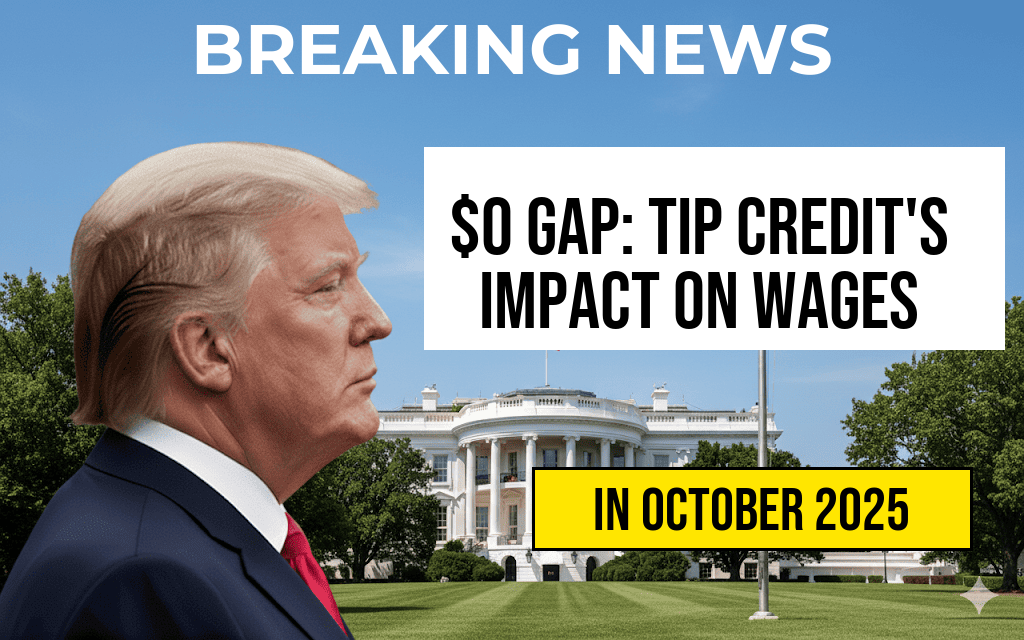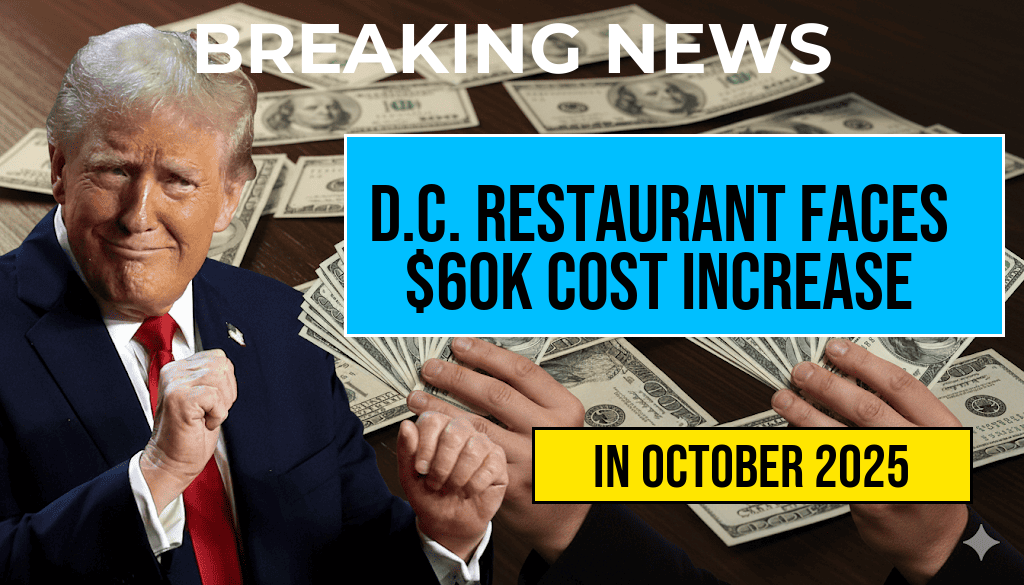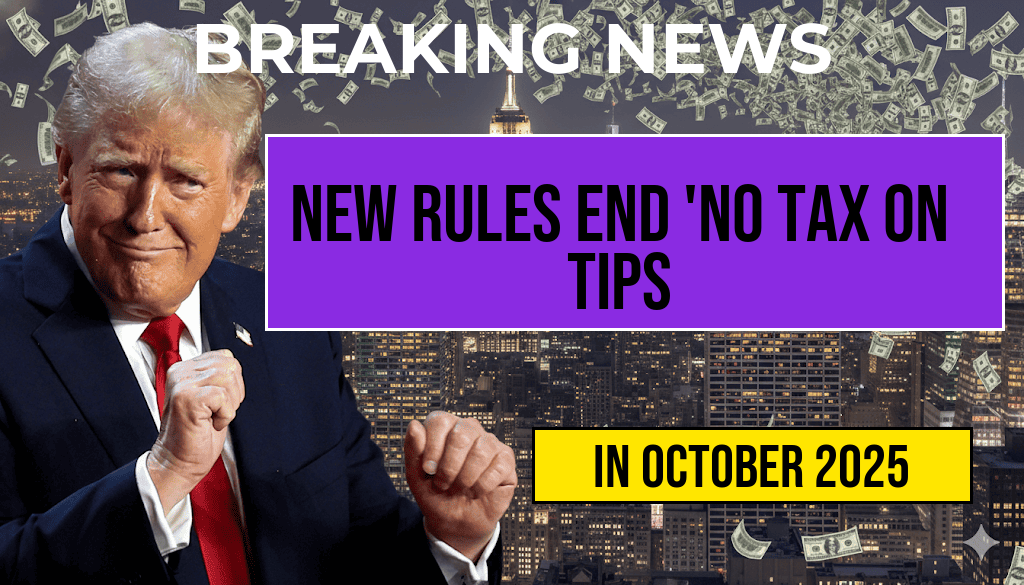The $0 gap in Washington D.C. has sparked significant debate among local employers, employees, and policymakers, especially as the city’s minimum wage rises to $17.95 per hour. A critical aspect of this ongoing conversation is the tip credit system, which allows employers in the hospitality sector to pay a lower base wage, relying on tips to make up the difference. This article explores the implications of tip credit on D.C. employers’ wage obligations, shedding light on its effects on the workforce and the broader economic landscape.
The Current Wage Landscape in D.C.
As of July 1, 2023, the minimum wage in Washington D.C. increased to $17.95, making it one of the highest in the nation. This increase is part of a broader trend across various states and cities aiming to ensure a living wage for workers. However, the tip credit system complicates this scenario, especially for restaurants and bars that rely heavily on customer gratuities.
What is the Tip Credit?
The tip credit allows employers to count a portion of their employees’ tips toward the minimum wage, effectively lowering their direct payroll obligations. In D.C., the current regulations permit employers to pay tipped employees a base wage of $5.35 per hour, provided that the tips received bring their total earnings to at least the minimum wage of $17.95. If total earnings do not meet this threshold, the employer must make up the difference.
Implications for Employers
For many D.C. employers, the tip credit mechanism presents both opportunities and challenges. Here are some key points illustrating its impact:
- Cost Management: The tip credit allows businesses, particularly in the hospitality sector, to manage labor costs effectively, which is crucial in a city with high operational expenses.
- Workforce Stability: With increased minimum wage expectations, employers may struggle to maintain a stable workforce if tips do not meet the required wage levels, potentially leading to turnover and training costs.
- Compliance Risks: Employers must navigate complex regulations regarding tips and minimum wage obligations, risking legal challenges if they fail to adhere to the law.
Impact on Employees
For employees in the service industry, the dynamics of the tip credit system can be a double-edged sword. While some workers can earn substantially more than the minimum wage through tips, others may find themselves at risk of earning less than the mandated wage if customer gratuities decline. The following aspects highlight the impact on employees:
- Income Variability: Tipped employees often experience fluctuating income based on factors such as seasonality, economic conditions, and customer spending habits.
- Job Satisfaction: Many employees enjoy the potential for higher earnings but also face pressure to provide exceptional service to maximize tips, which can lead to stress and burnout.
- Equity Concerns: There are ongoing discussions about the fairness of the tip credit system, particularly regarding its impact on workers from marginalized communities who may not receive as many tips.
Future of Wage Policy in D.C.
As the D.C. government continues to evaluate wage policies, the future of the tip credit remains uncertain. Some advocacy groups are pushing for the elimination of the tip credit altogether, arguing that all workers should receive the full minimum wage regardless of tips. Others defend the system, citing its role in supporting small businesses and allowing workers to earn more through their performance.
Legislative Developments
Recent discussions in the D.C. Council have focused on potential reforms to the tip credit system. Proposals include adjusting the base wage for tipped employees or implementing a gradual phase-out of the tip credit. These discussions reflect a broader national conversation about wage equity and the rights of service workers.
| Category | Minimum Wage | Tip Credit Wage |
|---|---|---|
| Current Rate | $17.95 | $5.35 |
| Tip Threshold | Must equal at least $17.95 | Combined with tips |
The ramifications of the $0 gap and the tip credit system will continue to evolve as stakeholders engage in dialogue about the future of wage laws in Washington D.C. Employers, employees, and policymakers must work collaboratively to ensure a fair and sustainable labor market that benefits all parties involved. For more information on the impact of wage policies, visit Wikipedia on Minimum Wage or Forbes on Minimum Wage Future.
Frequently Asked Questions
What is the $0 Gap in relation to the tip credit in D.C.?
The $0 Gap refers to the difference between the minimum wage that employers are required to pay and the actual wages earned by employees when tip credits are applied. In D.C., this gap is particularly relevant for businesses that rely on tips to supplement the wages of their employees.
How does the tip credit affect the wage obligation for D.C. employers?
The tip credit allows employers to pay a lower base wage to tipped employees, provided that their total earnings (including tips) meet the mandated minimum wage of $17.95 per hour. If the total does not reach this amount, employers are responsible for making up the difference.
What are the implications of the $0 Gap for tipped employees?
Tipped employees may experience a wage disparity due to the reliance on tips to meet their earnings potential. If the tips do not sufficiently supplement their base pay, they could end up earning less than the minimum wage, leading to financial instability.
How can D.C. employers ensure compliance with the $17.95 wage obligation?
To ensure compliance, employers must regularly monitor the total earnings of their tipped employees, including tips, to confirm that it meets or exceeds the minimum wage of $17.95. They should also maintain accurate records and be prepared to adjust wages as necessary to avoid penalties.
What changes could be made to the current tip credit system in D.C.?
There are ongoing discussions about reforming the tip credit system in D.C. Some advocates suggest eliminating the tip credit altogether to ensure that all employees receive a full minimum wage, regardless of tips, which could lead to greater income stability for workers.






